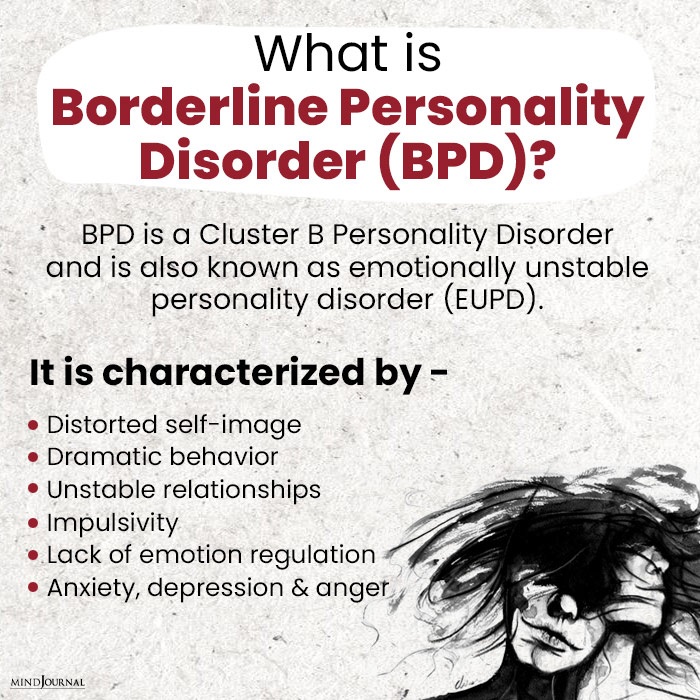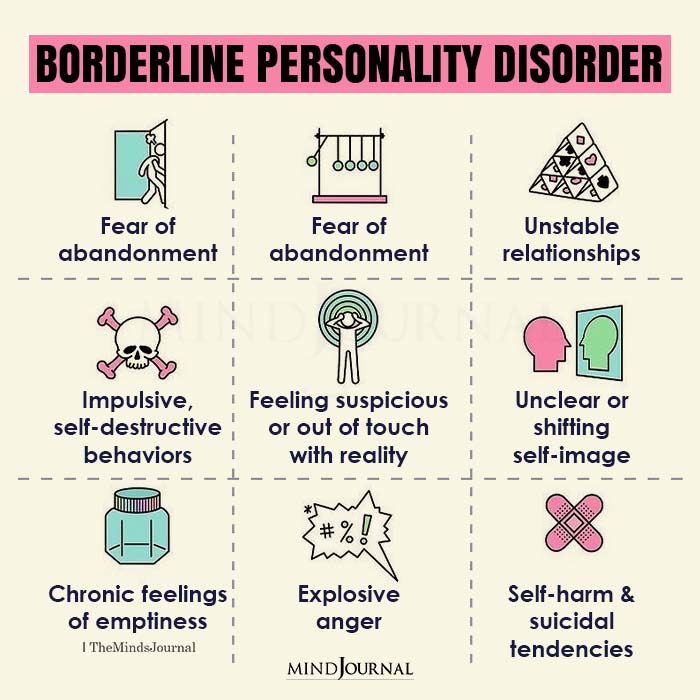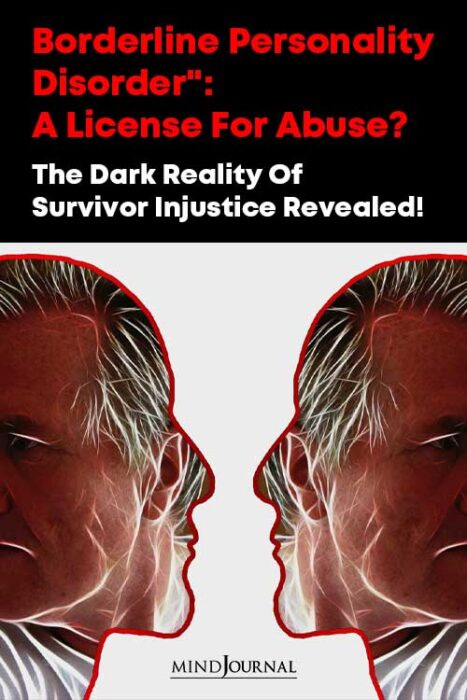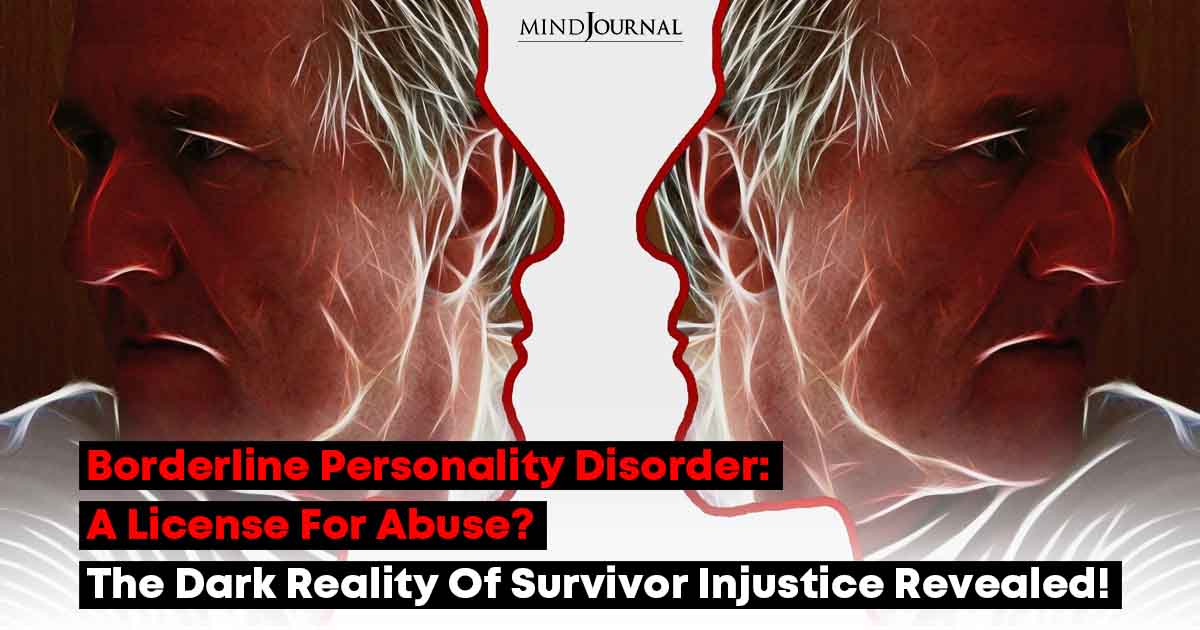In a shocking revelation, survivors of abuse are facing a double injustice with the psychiatric diagnosis of Borderline Personality Disorder (BPD).
Often touted as a means to provide understanding and support, the diagnosis is being weaponized by abusers to evade accountability and further victimize the survivors of abuse who have already suffered immeasurable trauma.
Read more here: Understanding Borderline Personality Disorder (BPD)
What If Borderline Personality Disorder Deepens Survivor Injustice?
At the heart of the issue is the fact that Borderline Personality Disorder diagnoses tend to divorce survivors’ responses from the abuse they endured, conveniently allowing abusers to minimize or dismiss their own role in the heinous acts committed.
This diagnosis places the blame squarely on the survivors themselves, labeling their natural adaptations to abuse as disordered personalities. It’s a cruel twist that effectively silences victims and perpetuates the cycle of abuse.
Equally concerning is the treatment survivors receive based on this diagnosis. Forced drugging, involuntary commitment, and the denial of agency in treatment decisions all too often become the norm for those labeled with Borderline Personality Disorder.

These harmful practices not only compound existing trauma but also strip survivors of their right to autonomy and dignity.
Read more here: The 10 Alarming Traits Of Borderline Personality Disorder That You Should Know
By decontextualizing their suffering and viewing it through the lens of a “defective personality,” survivors are subjected to further harm instead of being offered genuine support and understanding.
The damning consequences of the Borderline Personality Disorder diagnosis don’t stop there. It pathologizes and decontextualizes survivors’ anger and rage, distancing these emotions from their origins in historical and ongoing injustices.
By labeling these responses as “inappropriate” and containing them within a psychiatric framework, society conveniently forgets the violence and injustice that gave rise to them.

This denial of the roots of rage perpetuates an oppressive system and ignores the collective trauma experienced by marginalized communities.
The diagnosis of BPD also plays a significant role in facilitating abusers’ manipulation tactics, enabling them to reverse the roles of victim and offender.
By including “inappropriate, intense anger” and difficulty controlling anger in the diagnostic criteria, victims are discredited and portrayed as violent, allowing abusers to position themselves as the ones being harmed.
Society’s limited understanding of abuse further exacerbates this issue, as isolated incidents of anger or retaliation are wrongly used to accuse victims of perpetrating harm.
To add insult to injury, the Borderline Personality Disorder diagnosis constructs survivors as the antithesis of the “perfect victim.”
This fallacy imposes narrow and unrealistic expectations on survivors, demanding that they adhere to an idealized image of innocence and purity.
By failing to meet these unrealistic standards, survivors are cast aside and their credibility is questioned. This not only hinders their pursuit of justice but perpetuates a culture that discredits and disempowers those who have suffered abuse.
Efforts to destigmatize BPD alone will not solve the issue. It requires a fundamental shift in society’s understanding of victimhood, moving beyond rigid boundaries and acknowledging the complexities of survivors’ experiences.
The justice system, in particular, must stop relying on outdated notions of credibility and recognize the multifaceted nature of victimhood.
Read more here: 4 Types Of Borderline Personality Disorder
It is disheartening that many individuals receive a BPD diagnosis with a sense of relief, hoping it will finally bring understanding and an end to their suffering.
However, this seemingly benign label can easily be used against them, compounding the injustices they have already endured.
In the fight against survivor injustice, solidarity is crucial. Recognizing the larger movement to oppress resistance to abuse and aligning with anti-violence and abolitionist work will help dismantle the systemic barriers faced by those diagnosed with Borderline Personality Disorder.
Only then can we begin to provide genuine support, hold abusers accountable, and work towards a society that truly values and uplifts survivors of abuse.
Survivors deserve justice, compassion, and the opportunity to heal, free from the chains of a diagnosis that further victimizes them.
It is time to break the cycle and create a society where survivors are heard, supported, and their stories of abuse are met with empathy.









Leave a Reply
You must be logged in to post a comment.